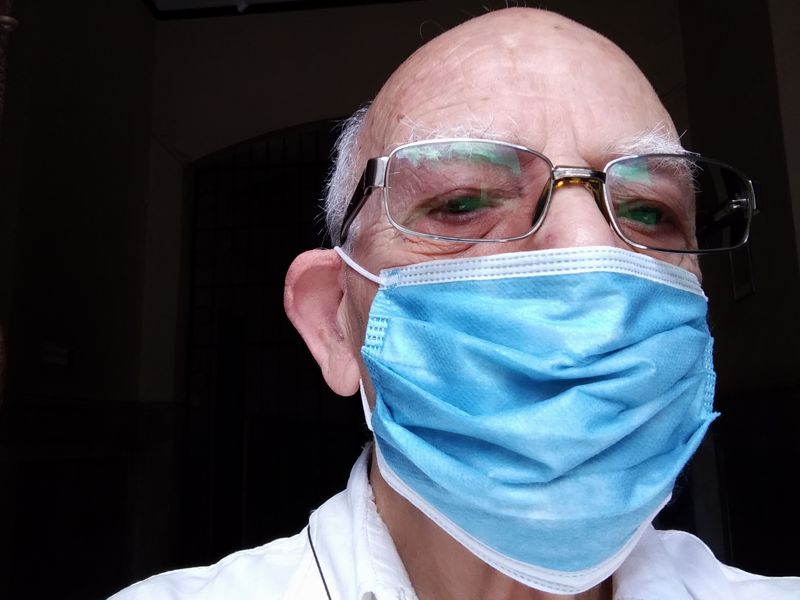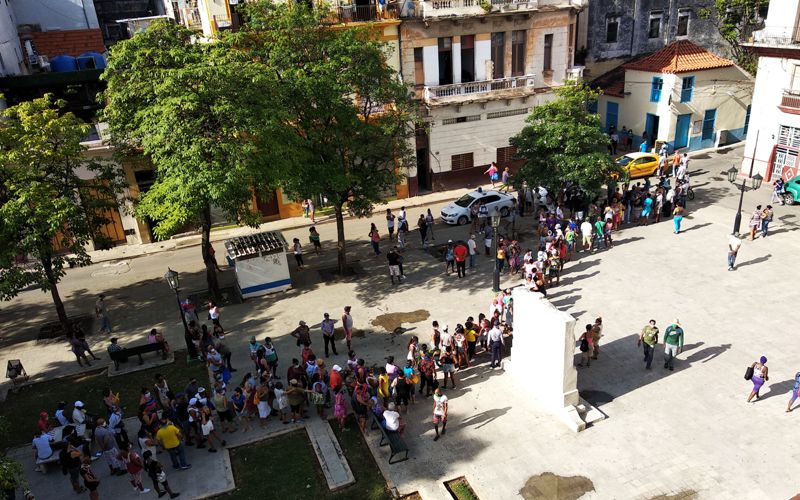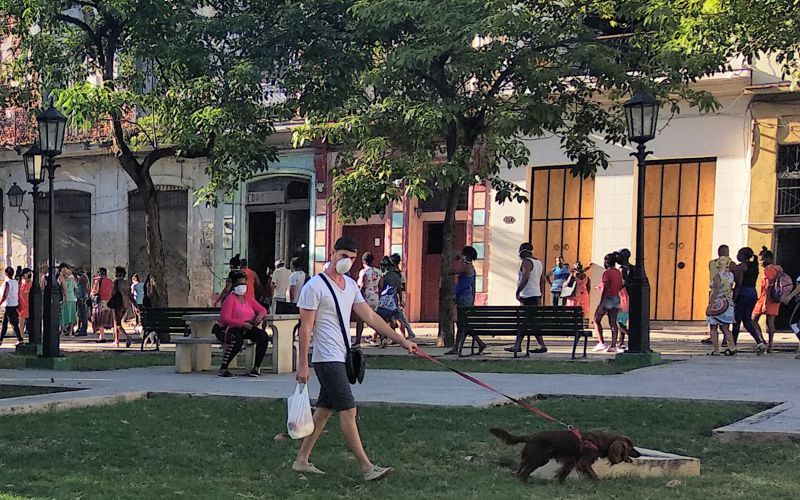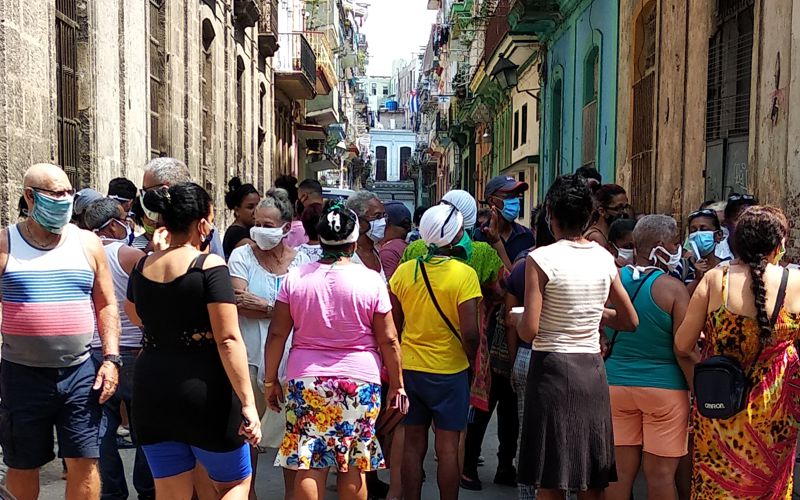
Se acabó, (it is finished) – P. Luċjan Borg OSA writes from Cuba
As was the case in other countries, the Covid-19 – or as it is known here, the Koronavirus – also reached Cuba. Initially, it had a cold reception as the majority thought that, being an island, Cuba would not be affected. Thank God, the negative effect was not as bad as was the case in many other countries. According to news given on Cuban TV, Covid-19 reached Cuba through an elderly man of Italian nationality who, as part of a group, visited the island on holiday for a few days in one of the most beautiful islands in the Caribbean. We did not even know that this man was suffering from other medical conditions as a result of which he died here due to the Covid-19. Shortly thereafter we discovered that, soon after his arrival in Cuba, this elderly man’s accommodation was a guest house just two roads away from our parish and convent.
It all started around mid-March. Up to then everything was normal with people going around as usual, in the morning patiently waiting for public transport on their way to work or doing the rounds buying whatever was necessary for their daily needs, especially to ensure that the family had sufficient food. Way into the night and until the early hours of the morning everywhere, including in the public gardens, people were laughing, singing and dancing to very loud music. This is the daily life we experience in the capital, La Havana.
The group of Italians, after having spent a few days in Havana, went to the city of Santa Clara, a distance of about 270 kilometres and there this man felt sick and became the first Covid-19 case in Cuba. The news was announced on TV but, in spite of this, life continued normally as though nothing of concern had happened. For the first fifteen days neither the civil nor the church authorities issued any directives. It was left to the students at the university of La Havana and of the Pontifical Institute, where I am working, to make people realise the dangers attributable to the virus and requested that the university and our Institute be closed.
In our Augustinian community, as I recounted what was happening at the Institute, it was considered prudent to call a meeting of the parish council on 20 March at 10 a.m. to which we invited our brothers the Salesians who live in the parish so that, together, we would consider what action to take until government and the church announced what precautionary measures were to be taken. The parish council decided to close our churches immediately after the last Mass of Sunday 22 March. We were amongst the first in Cuba who took such action. On that same day in the afternoon I took part in the academic council of the Institute which was also attended by a student who was behind a move for the Institute to be closed. Here also we decided that on Monday 23 March, after the last class, the Institute would be closed.
At that stage we were still optimistic. We thought that this was only a temporary storm similar to tropical storms that come with great strength but pass by quickly and, although these could wreak havoc in a short time while the storm is blowing, one needs to stay indoors to protect oneself and his home. On that day, that is 20 March, we thought that by mid-May we would be able to reopen the Institute and everything would be back to normal as if Covid-19 had never happened. How mistaken we were and how wide of the mark!!
Finally, both government and the Church issued their directives. They practically copied the measures already taken in Europe but without the enforcement of the European measures, especially as regards quarantine which here, in Cuba, is given scant importance; here they prefer using the words ‘social isolation’ or the more Spanish version of ‘confinement’.
From day to day everything started to be closed, public transport in the cities ceased, and also in the rural areas and between the same provinces. A great silence fell especially in the public gardens that are situated in front of our premises. On his part, the minister for health took the necessary measures to confront the pandemic. Thank God, Cuba has very good structures in this sector and also wide experience. In fact, they managed to control the situation so well that so far Covid-19 has caused only 96 deaths out of 2,462 infected persons that needed hospital treatment. At present the pandemic is under control one hundred per cent. All provinces, apart from ours of La Havana, are in the third stage; there are no deaths and one or two infected cases daily.
Covid-19 brought with it great harm, but what a great lesson this is to humanity today! As was well said by Pope Francis in his Urbi et Orbi sermon on 27 March 2020, the Corvid-19 pandemic “uncovered our vulnerability and threw wide open the superficiality and false security with which we planned our agendas, our projects, our routines and our priorities…………..it took away the ‘make-up’ of these stereotypes (that is the style of life that we accepted without at least asking ourselves what was the worth of these) with which we dressed up our egos if not to embellish our external image”.
Above everything, the Covid-19 pandemic, Pope Francis continued to say, reminded us that we form part of the same family, that we are all brothers, and this fact, concludes Francis, “from which we are unable nor do we want to escape from”. This sermon of Pope Francis is appropriate especially for the inhabitants of rich countries in the West more particularly in Europe and North America where man made material gains but got poorer spiritually, lost his soul so as to be seen nice in persona, his personality became barren land, without values, and a valley of superficiality.
What effect did the Covid-19 pandemic have on Cuba, especially at La Havana? Without doubt this has made us poorer not only materially but also interiorly and with the Cubans with whom we form one family. The fact that we are all brethren was never overlooked. It is an undeniable fact that the pandemic has made us poorer economically. Presently we have no meat (including pork) nor fish and in the rural areas there are no vegetables nor other essential agricultural products. One cannot even find a box of matches!!!
From the time that we found ourselves in the first phase here at La Havana when a consignment was received of chicken; oil and other essential products, one had to be registered in a list waiting for long hours to be allowed into a shop with a half-hearted feeling because it is not the first time that, when your turn comes to be allowed into the shop, you are told by the guardian at the door that there is no more food. Two weeks ago, one of our parishioners managed to have my name recorded on the list. My number was 283. It took us five days for our turn to come up and we were fortunate to manage to buy a bag of 8 chicken legs for 3 persons and these had to serve until the next consignment of chicken was received!!
When in this article I referred to the quarantine I said that Cubans do not make much use of this word and that this quarantine was not too stringent. Daily we were warned through the TV to stay at home. This was worthless as Cubans do not bear staying indoors, they have an urge to go out, to meet others. To be separated socially from others makes one feel distressed and with a saddened heart. The pandemic still was unable to constrain the Cubans to stay at home. The lack of food and other essentials was the best excuse for the Cuban people to get away from being locked at home or within oneself.
The roads were never completely empty. And now after only in the first phase of recuperation, the roads are getting fuller with children, youths and adults. Singing and music have again started to give way to the silence that the Cuban is not used to.
If the rich people of the West through the Covid-19 pandemic had, and sill have, the ability to regain a sense of family and of society, the Cuban had and still has the opportunity to cherish silence, more so interiorly, to live the reality of the family not only materially but also its human and spiritual values. Above all to engender a personality that, whilst enjoying conditions of life that are materially, and humanly fitting, open more to transcendental values and to the Christian faith.
This is the challenge which I feel we have before us we, Augustinians in La Havana, now that we are moving towards a new normality; both in the parish as well as in the seminary and the Pontifical Institute P.F. Valera, together with the Cuban people – children, youths and adults whom God has entrusted in our hands -, we need to fight to make a better future and to reach the point, even if imperfectly, to build a Church and society more merited by humanity and by a Christian way of life that lead to true happiness of the soul and body. This is the true happiness that integrates the material with the spiritual, the individual and society in a wider vision, open and harmonious, where man, as St. Augustine says, although surrounded by many difficulties and trials but with a lot of peace, lives with a firm commitment on this earth as a pilgrim moving towards his true goal of eternal life, a lasting reunion with God and the angels and the saints.
P. Luċjan Borg O.S.A
 |
 |
 |

